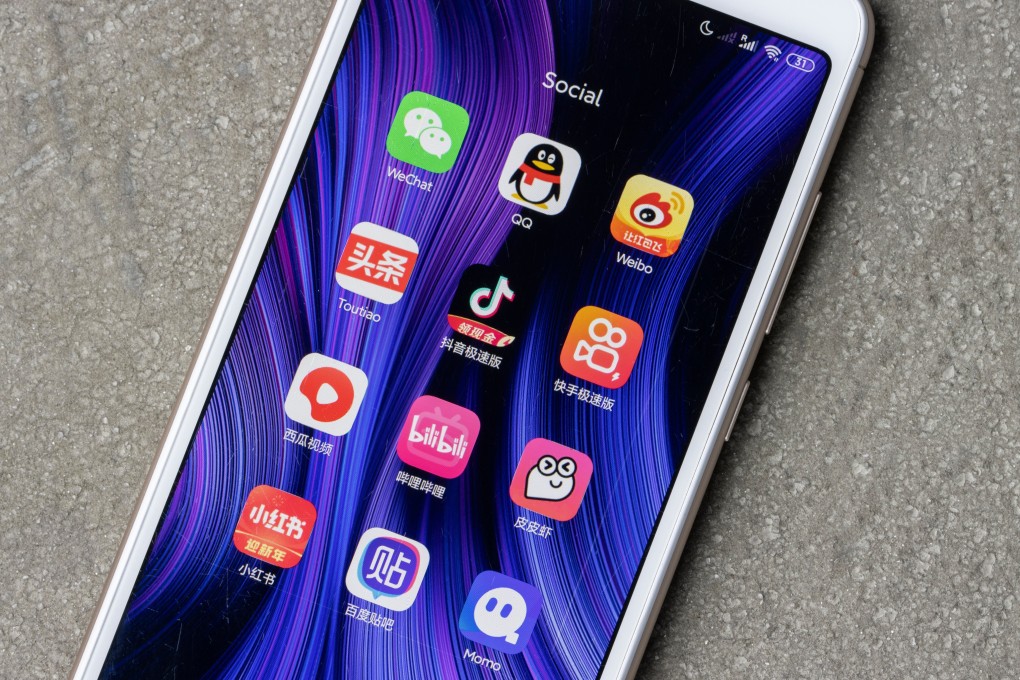Advertisement
Chinese social media platforms Weibo, WeChat and Douyin’s real-name authentication rule for influencers to benefit operations amid tightened online regulation, analysts say
- WeChat, Douyin, Kuaishou and Bilibili on Tuesday asked users with at least 500,000 followers to disclose their actual names in their profile page
- They followed Weibo’s initiative last month, making it mandatory for influencers with a large number of followers to reveal their real identities
Reading Time:2 minutes
Why you can trust SCMP
1

Ben Jiangin Beijing
Efforts by mainland China’s largest social media operators to get popular influencers to display their true identities online are expected to benefit these platforms’ operations, according to analysts, as Beijing continues to tighten its control over the world’s largest internet market.
Advertisement
Tencent Holdings’ WeChat, ByteDance-owned Douyin, Kuaishou Technology and Bilibili were among the major Chinese social media services that made simultaneous and similar announcements on Tuesday, asking users with at least half-a-million followers to disclose their actual names in their profile page.
That followed microblogging platform Weibo’s initiative last month, making it mandatory for online influencers with a large number of followers to reveal their real identities in spite of initial concerns about privacy.
“This [public display of influencers’ identities] will strengthen community regulation and governance for these platforms,” said Zhang Yi, founder and chief analyst at market consultancy iiMedia. “While this policy will place constraints on influencers, it will ultimately benefit the platforms.”

Weibo had introduced the policy on real-name accounts after internet regulator the Cyberspace Administration of China (CAC) introduced a 13-point set of rules in July to increase the management of zimeiti or “self media” – accounts that publish news and information, but are not government-run or affiliated with official media.
Advertisement

Advertisement